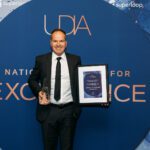Curtin University has again achieved outstanding results in the QS World University Rankings by Subject including a ranking of 19th in the world for Mineral and Mining Engineering, and 40th in the world for Earth and Marine Sciences.
Overall, Curtin was ranked in 18 subjects and ranked as a top 100 university in seven:
* Mineral and Mining Engineering
* Earth and Marine Sciences
* Architecture/ Built Environment
* Nursing
* Chemical Engineering
* Art and Design
* Education
The University improved on its 2015 ranking in six subjects: Accounting and Finance, Business and Management Studies, Chemistry, Civil and Structural Engineering, Earth and Marine Sciences, and Geography and Area Studies.
Curtin’s Vice-Chancellor Professor Deborah Terry said the ranking results are a testament to the University’s strong connections with industry, high quality research and wide range of innovative courses.
“The very strong rankings for Mineral and Mining Engineering and Earth and Marine Sciences were pleasing, as was the breadth of areas in which we are ranked as a top 100 university,” Professor Terry said.
“Curtin continues to receive global recognition in the QS rankings ensuring students, staff and alumni can be proud to be involved with one of the leading education providers in the world,” Professor Terry said.
QS provides a ranking of 42 subjects which are categorised in the five broad disciplines of arts and humanities, engineering and technology, life sciences and medicine, natural sciences, and social sciences and management.
The rankings are compiled based on academic reputation, employer reputation, and citations indicators. This year, QS drew on survey responses from more than 76,000 academics and 44,000 employers and analysed more than 28 million research papers and 113 million citations.



